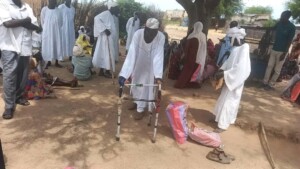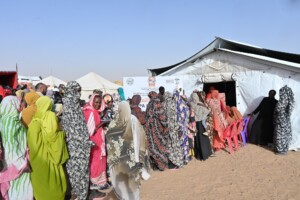New paper examines effect of US economic sanctions
In a new paper, Tools of Trade: US Sanctions Regimes and Human Rights Accountability Strategies,” the International Corporate Accountability Roundtable and Enough Project lay out the essential elements of how sanctions programs are created, implemented, and enforced.
 File photo
File photo
In a new paper, Tools of Trade: US Sanctions Regimes and Human Rights Accountability Strategies,” the International Corporate Accountability Roundtable and Enough Project lay out the essential elements of how sanctions programs are created, implemented, and enforced.
Sanctions represent an essential part of the US foreign policy toolkit, yet human rights practitioners and advocates often lack the essential understanding of how they work. The paper lays out the critical details of the legal authorities underlying sanctions, the agencies involved, and the approaches to implementation that have proved most effective.
The paper then moves from sanctions architecture to analysis and strategy, pointing out with regard to Sudan, for example: “Secondary sanctions have in fact already been applied for human rights objectives in the form of divestment actions.For example, in an attempt to pressure Sudan to end the violence in Darfur, Congress passed the Sudan Accountability and Divestment Act of 2007,which authorised state and local governments to divest their assets in US or foreign companies that operate in the oil, mineral extraction, power production, and military sectors in Sudan.
“In recent years, groups have been calling for more directed secondary sanctions and punitive measures to pressure foreign firms providing a lifeline for repressive regimes targeted by US sanctions. For instance, the Enough Project observed that Sudanese banks were able to sustain US comprehensive sanctions mainly because they could obtain services from other financial firms in G7 and G20 countries. Continued access to the international financial market allowed Omar al-Bashir’s regime to “procure weapons for use against the Sudanese people, provide safe haven to terrorists or engage in grand corruption.” In order to impose direct pressure for the third-party banks to disengage with the Bashir regime, the Enough Project called on the US government to develop targeted punitive measures that cut off their access to the US financial market and limit their ability to deal in foreign exchanges, the paper expains.
Click here to read the full paper or click here to read a one-page summary.











 and then
and then